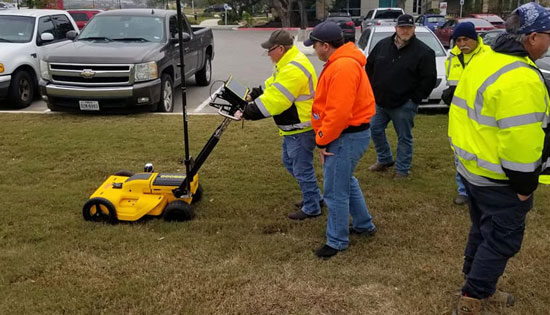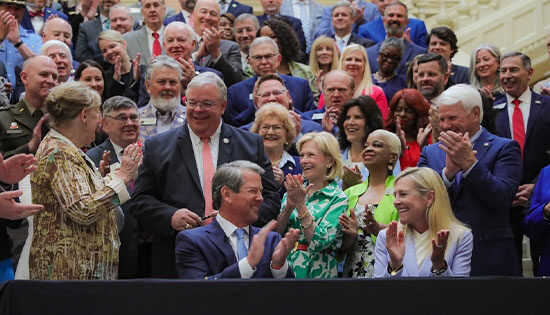WASHINGTON — Georgia Congressman Buddy Carter notes significant pro-life legislation that the House passed, in addition to comments regarding the US position relating to Iran’s nuclear threat.
LANDMARK PRO-LIFE LEGISLATION
I am excited to report that the House passed landmark pro-life legislation this week to extend protections for the unborn. I supported H.R. 36, the Pain-Capable Unborn Child Protection Act, to ban abortions nationwide 20 weeks after conception except in the cases of incest and rape. The legislation is supported by nearly every pro-life organization including the Georgia Life Alliance, the National Right to Life Committee, Concerned Women for America, Family Research Council, Americans United for Life, Christian Coalition, Susan B. Anthony List, National Committee for a Human Life Amendment, and March for Life.
As a healthcare professional, father, grandfather and Congressman, I strongly believe life starts at conception. There is overwhelming scientific evidence proving that precious babies are capable of feeling pain after 20 weeks and this legislation would put a necessary end to the excruciating abortion methods used in late term pregnancies.
While this legislation is a strong win for the pro-life cause, it’s time for the United States Congress to stand up for all those who cannot stand up for themselves and pass permanent federal legislation that will protect innocent lives at any stage of gestation. I have cosponsored H.R. 426, the Sanctity of Human Life Act, which protects human life from conception. I will continue to be an advocate for those who cannot protect themselves.
CONGRESSIONAL OVERSIGHT OF THE DANGEROUS IRAN NUCLEAR DEAL
This week, the House passed H.R. 1191, the Iran Nuclear Agreement Review Act, to prevent the president from unilaterally lifting sanctions in Iran if Congress does not approve the final nuclear deal currently being negotiated.
There is no question that Congress should have oversight and scrutiny over any nuclear deal with Iran. Our president is negotiating this deal and ignoring the reality that Iran has a long-term plan to increase its nuclear capabilities while threatening Israel, one of our closest allies, and the security of the entire world. These negotiations are a ploy to trick the United States and our allies into allowing full freedom for Iran to grow their nuclear presence, implement their plans of terror and provoke a nuclear arms race in the most unstable region.
Allowing Congressional oversight is the only way the American people, through their elected representatives, will have the opportunity to voice their concerns. The president must work with Congress to ensure the Iranian regime is held accountable and the threat of their nuclear program is eliminated.
REDUCING THE FOIA BACKLOG AT DHS
The Committee on Homeland Security’s Subcommittee on Oversight and Management Efficiency approved my legislation this week to require the Chief FOIA Officer at the Department of Homeland Security to improve and streamline the FOIA request process at the department to reduce their backlog and provide greater transparency on costs associated with the FOIA process.
I introduced my legislation, the DHS FOIA Efficiency Act of 2015, after a Government Accountability Office (GAO) report found that DHS has an outstanding number of backlogged FOIA requests due to mismanagement and duplicative efforts between components of the department. At the end of fiscal year 2013, DHS held approximately half of the reported backlogged federal FOIA requests, more than any other federal agency.
In what is supposed to be the most transparent administration in history, DHS has an abysmal record when it comes to FOIA requests. It boasts the largest backlog of any federal agency and was given a D+ for its handling of them by an independent watchdog.
I am pleased the subcommittee approved this important legislation moving these desperately needed reforms to improve the process, eliminate duplication and significantly reduce the backlog while increasing transparency and accountability to the public one step closer to reality.
Office of Congressman Buddy Carter











